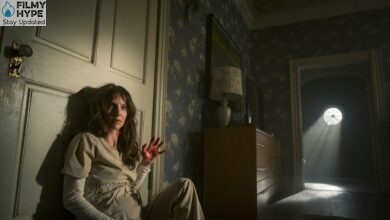The Little Mermaid Review: A Touching and Respectful Flesh-and-Blood Remake
Cast: Halle Bailey, Melissa McCarthy, Jonah Hauer-King, Awkwafina, Jacob Tremblay, Daveed Diggs, Javier Bardem
Director: Rob Marshall
Where We Watched: In Theaters
Filmyhype.com Ratings: 3.5/5 (three and a half stars)
The Little Mermaid in 1989 was a turning point for Walt Disney Pictures. For the first time, Alan Menken and Howard Ashman were summoned by Jeffrey Katzenberg to completely change the production line adopted up to that moment in Burbank. They were asked to bring the Broadway experience to the Los Angeles sets, to be able to restart the animation industry that fell into disgrace during the eighties. With the support of Ron Clements and John Musker, returning from a formative experience on The Great Mouse Detective, Disney gave birth to that flourishing period known as the Renaissance, marking the needed commercial turning point. We like to think that it is no coincidence that on the 100th birthday, we go to celebrate The Little Mermaid, in the same year in which the release of Wish on December 21st will celebrate those wishes and dreams that have always dominated Burbank since 1923 Today, however, we tell you what the live action of The Little Mermaid has left us.
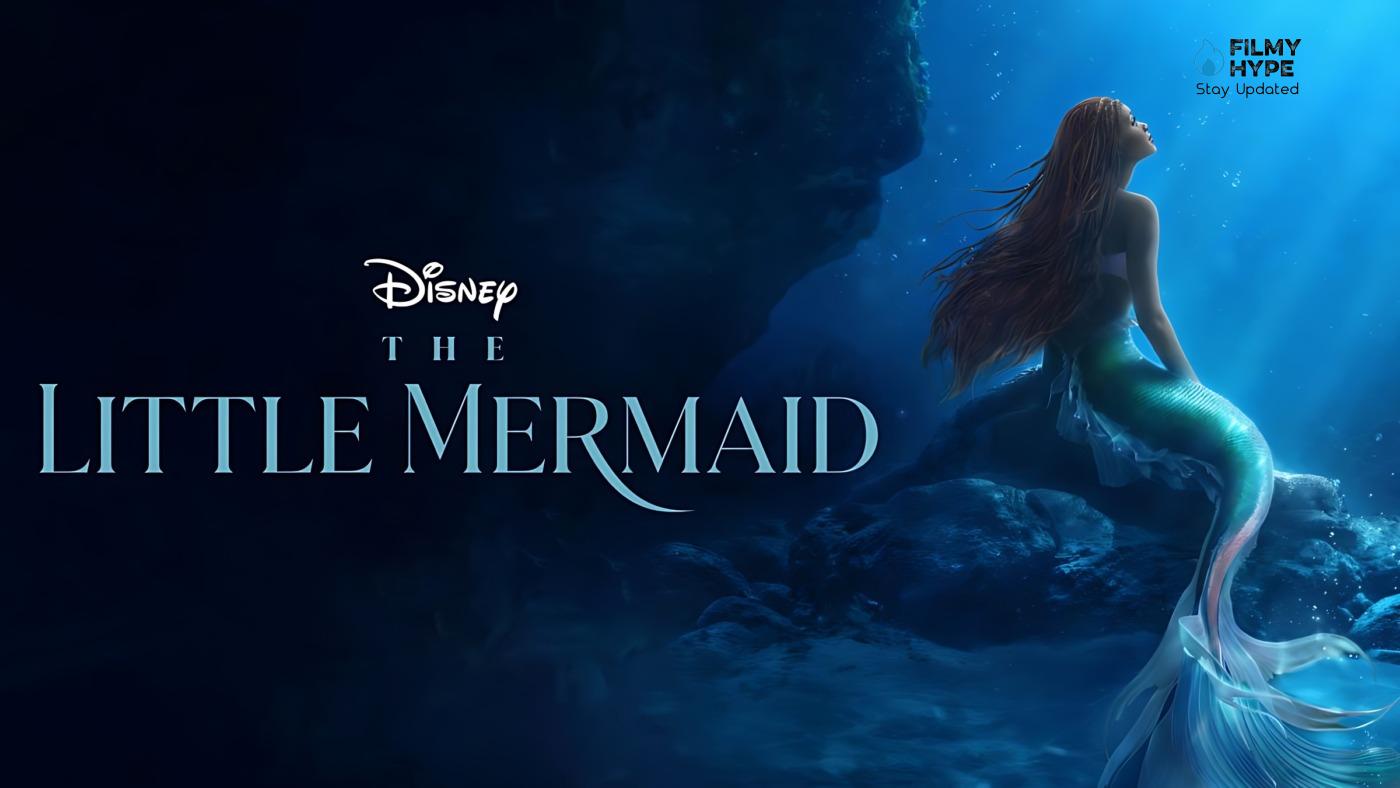
In our review of The Little Mermaid, we will descend with you into the depths of the sea to capture the magic that lies behind the making of the live-action arriving in our cinemas from Wednesday 26 May. Because it is one thing to say that the 1989 cartoon is an unattainable masterpiece of animation mastery and feminist storytelling, it is quite another instead to confront the cinematographic model directed by John Musker and Ron Clements and emerge victorious after all with a brand-new version similar to the contemporary sensibilities, without however distorting or losing charm and humanity.
The Little Mermaid Review: The Story Plot
As with almost all Disney live-action remakes in recent years, so is the plot of this version of The Little Mermaid follows that of the animated classic, with the teenager Ariel, the youngest daughter of the King of the Sea, Triton, passionate about the world of humans, a world that her father tells her is very dangerous, forbidding her to go to the surface. Nothing more mathematical than forbidding a teenager to do something to get the opposite effect, even at the bottom of the sea. And so, Ariel comes into contact with humans, even saving one from a shipwreck. Prince Eric, the castaway in question, becomes Ariel’s obsession, and the Sea Witch, Ursula, eager to take the power of King Triton, sees in this stubborn and rebellious daughter the lock with which to insinuate herself on the throne of the Sea.
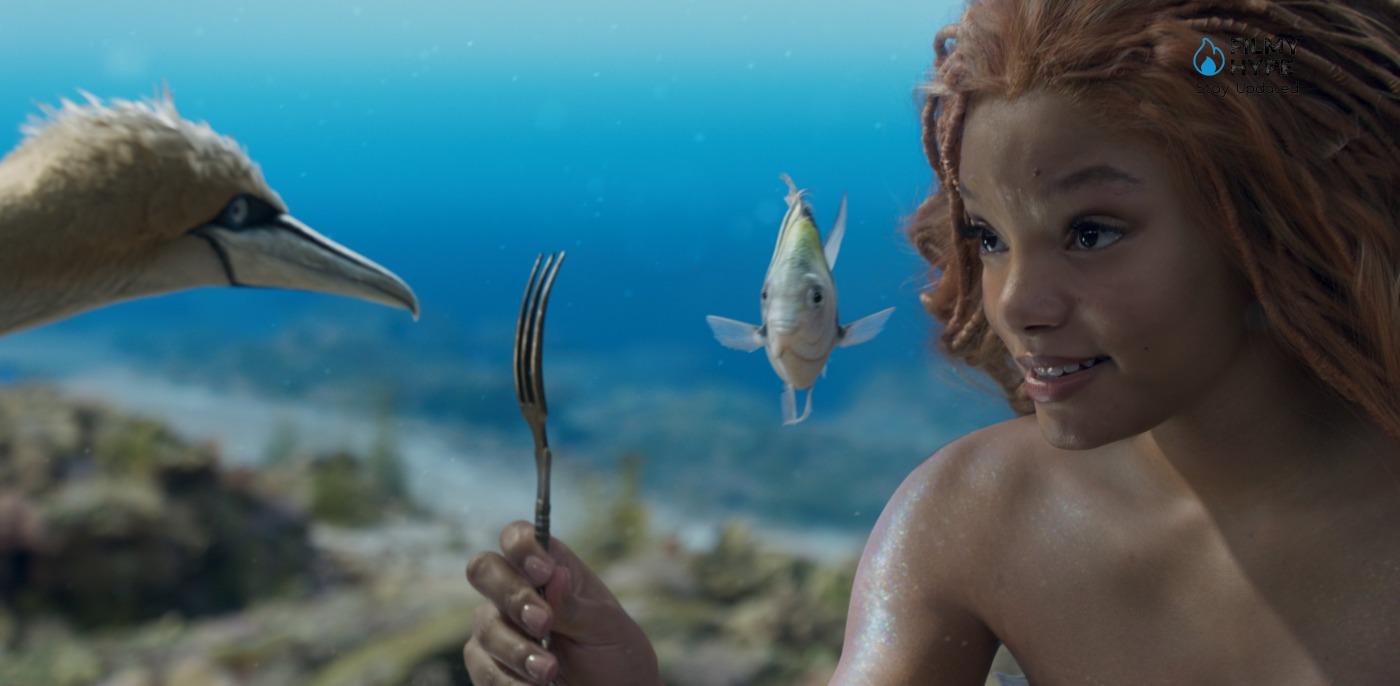
From a plot point of view, Rob Marshall’s The Little Mermaid does not aim to tell any story different from what Musker & Clements did in 1989: the story follows the desire for escape by Ariel, one of King Triton’s seven daughters, sir of the seas. The conflict she lives with her father is justified by some interludes, entrusted to lines of dialogue from a classic “explainer” that allow us to contextualize some elements that have remained dormant for these thirty years: both a feeble origin story concerning Ursula, which could have had greater satisfaction in a film whose running time is almost an hour longer than the Classic, as well as the motif of Triton’s hatred of humans. For the rest, beyond a single added original character, namely Eric’s mother, the entire narrative structure does not change in any aspect, indeed the direction of the dubbing ensures that, in concert with the adaptation, many lines of dialogue are replicated with respect of what was the Classical tradition that inaugurated the Renaissance.
The Little Mermaid Review and Analysis
The live-action doesn’t add much in terms of Ariel’s character development, the changes are imperceptible, and the enrichments don’t clash, and don’t weigh down the narrative. Too bad you can’t say the same about the other characters. While it’s true that Prince Eric has more impact here and has more personal moments than the classic (it even has his song), it’s equally true that some of the new additions go nowhere. We are told that he was adopted by the Queen (Noma Dumezweni), but this information is quickly dismissed and never explored.
The perfidious Ursula, here, becomes Ariel’s aunt but, again, it is an introduction that leaves the time it finds, without ever transforming into an important narrative line that adds depth to the story or to the motivations that push her as a villain. Melissa McCarthy, for her part, is the author of an excellent performance and steals the show every time she appears. On the other hand, Javier Bardem seems much less at ease grappling with King Triton: a casting choice, sad to say, not a very happy one. An ecological message is hastily introduced, in a not exactly credible way, also soon abandoned and although Ariel’s character is so independent and aware, in the end, the sacrifice is only hers. The balance doesn’t shift by an iota: it is once again love that moves everything, it is still she who sacrifices herself for him.
For its intended audience, The Little Mermaid is a fair film. This is an adaptation designed for very young spectators and it is mainly for this slice of the public that Rob Marshall’s film speaks. And in doing so, he doesn’t take a wrong approach, on the contrary. Enthralling, with a good rhythm – except for some lengthiness that weighs down the progress in the central part – with a fair number of well-shot action scenes and musical numbers up to par. The visual effects allow the pun to fail on several points but the balance, even in this aspect, is overall positive. Better lighting in some of the underwater scenes wouldn’t have hurt, and the CG rendition of some character details isn’t always up to scratch, but in general, The Little Mermaid is strong in a discreet technical sector.
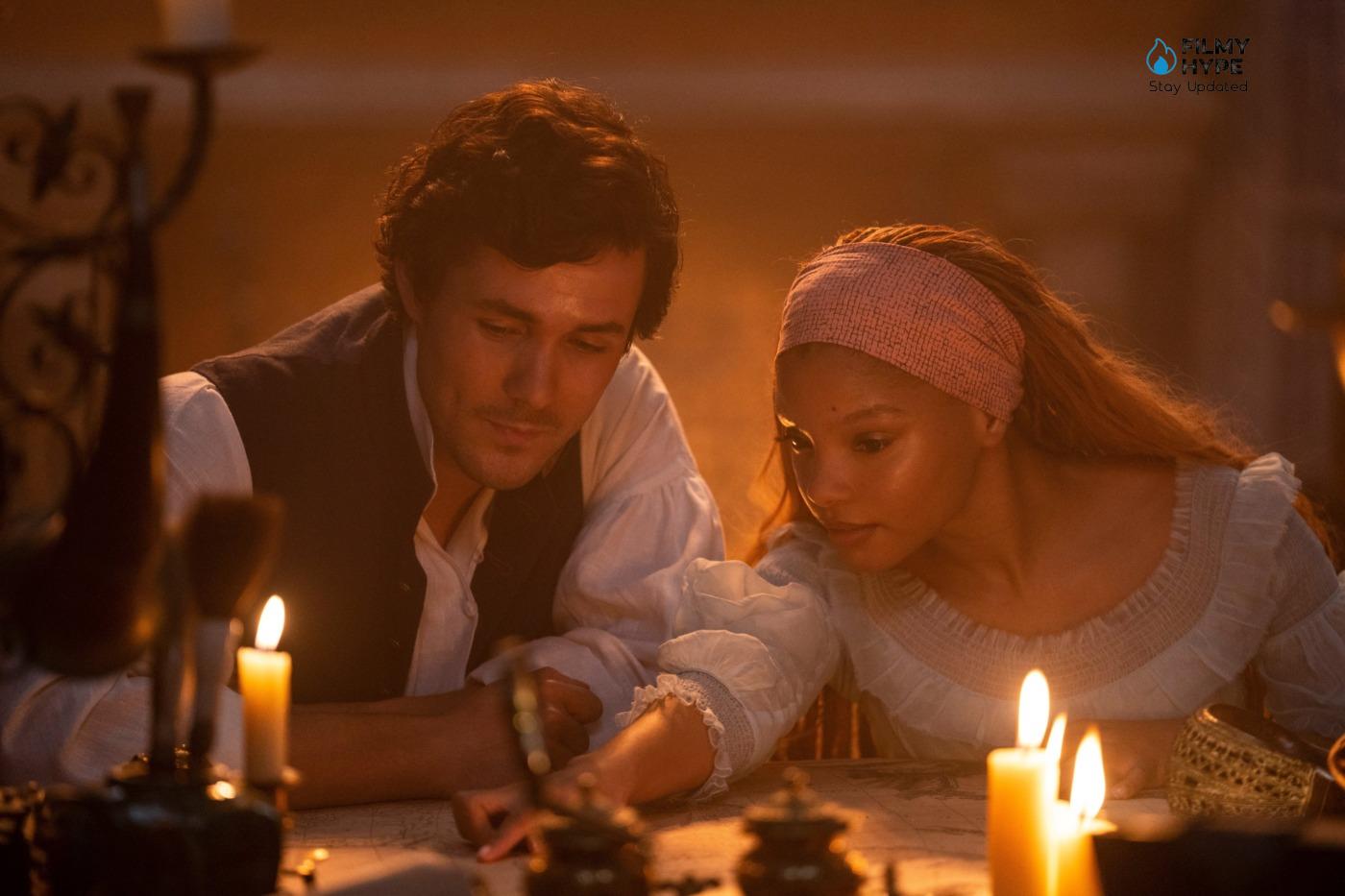
One of the most relevant changes in the film is related to Prince Eric who in this live-action remake of The Little Mermaid is an adopted heir to the throne, fatherless and eager to discover the world, fascinated by the seas not yet drawn on the maps, great collector of objects brought back to his island by travel and raised by his mother, Queen Selina (a character created specifically for the live-action) in terror of the people of the sea and the strength of the waves which, from generation to generation, erode the coasts of ‘island. Screenwriters Jane Goldman and David Mageethey were careful to give structure to the character, an emotional touchpoint with Ariel, and an elective affinity with this rebellious daughter of the Sea King who wants to see the world and collects objects found in the wrecks of galleons. On these narrative foundations, the love story is much more solid and structured, we dare say more believable if we weren’t afraid of offending the purists of the animated film.
Even in the less happy elements of the realization, i.e. Ariel’s talking animal friends, The Little Mermaid manages to find a way to sweeten that slightly disturbing aspect that Sebastian, Flounder, and Scuttle assume in their undecided computer graphics creation between a realistic look and a more cartoonish, which certainly goes better with the fact that these animals speak and sing. The secret to these crashed designs that Disney thought might be okay is the voice acting: Daveed Diggs, Jacob Tremblay, and Awkwafina deliver delightful performances. And while Tremblay perfectly conveys the sweet and slightly shy personality of the little fish, Diggs and Awkwafina are an irresistible comic duo, a very important added value to the film. The impression that it could have been done better in the design phase does not pass, but it is undeniable that the contribution of the interpreters gives the characters a spirit that goes beyond the paucity of design.
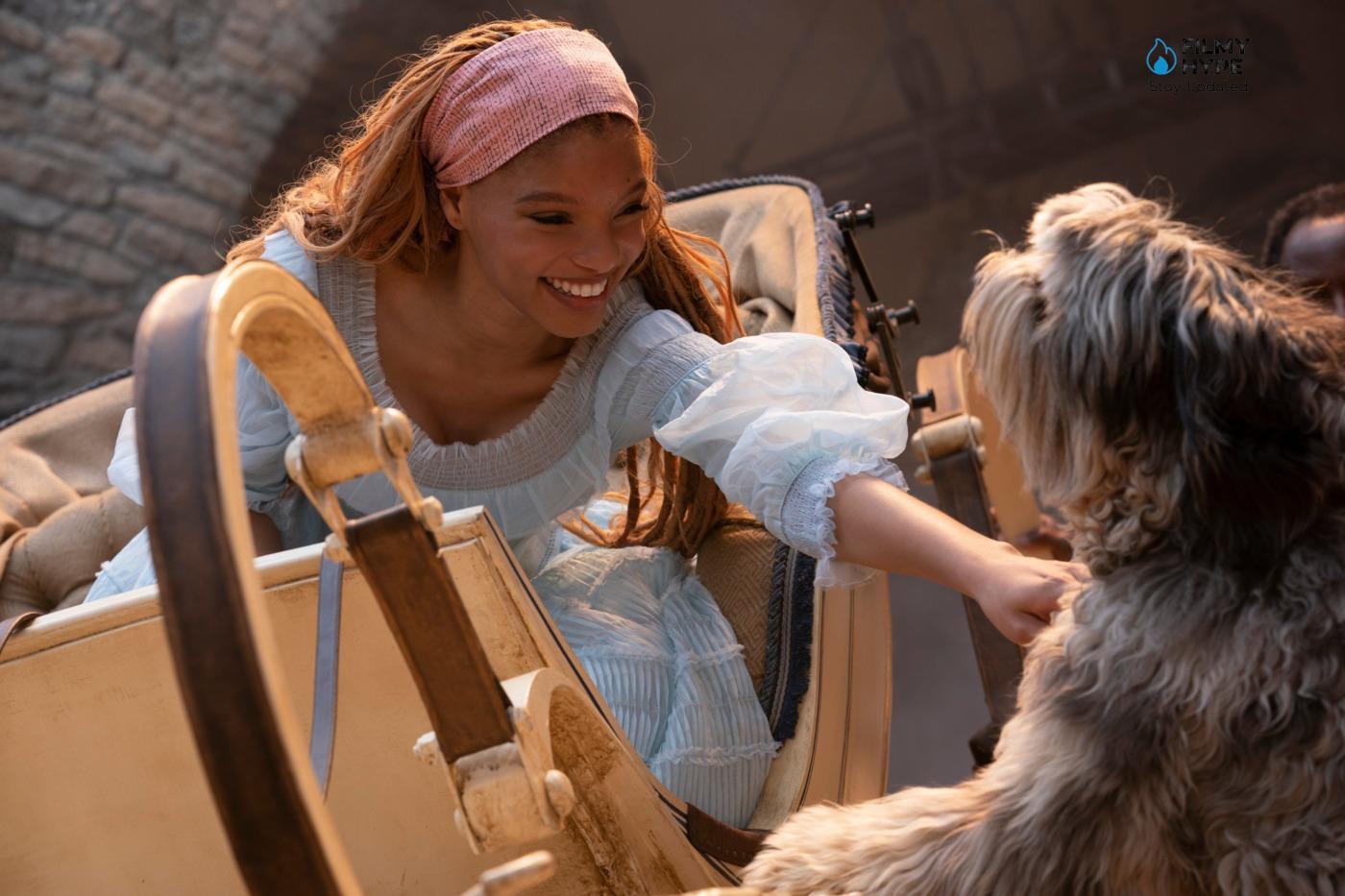
The secret of this The Little Mermaid is all here: the film has a great spirit that springs mainly from the sweetness and talent of an unprecedented and modern Ariel, not so much in character, which she already was original, as in attitude. What could have been a huge misstep by Disney turns out to be one of the best live-action remakes ever of the House of Mickey Mouse, on par with Jon Favreau’s The Lion King. A romantic adventure, a story of freedom and self-determination that speaks to today and that gives new life to magic and to the notes that made the history of cinema in the 90s.
The Little Mermaid Review: The Last Words
Rob Marshall’s The Little Mermaid is a pleasant film, which is almost surprising given the premises of the previous months in which a wall of prejudices about what would happen was erected. The soundtrack has been respected and remains intact, as well as the plot, which relies faithfully on the Classic. The interpretations are all successful, both of the original actors and the dubbers, except Mahmood’s acting, which redeems itself on singing. Javier Bardem is not exciting, just as we are disappointed by the flat characterization of Sebastian and Scuttle, of whom we could have asked for more: their scarce use, however, is the son of that humorous line that is elided from live action, as we could already notice in other variations on the big and small screen.





